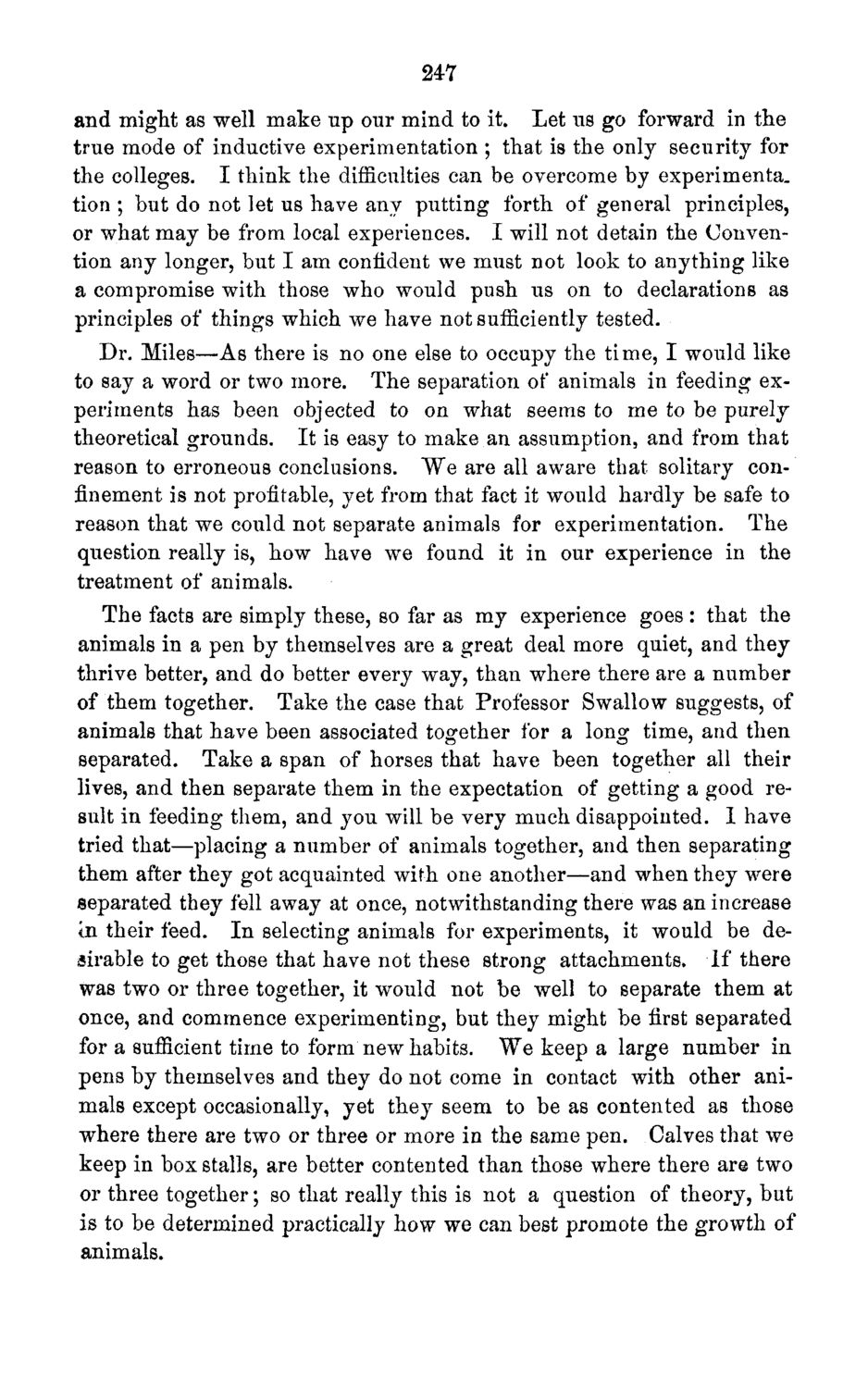| |
| |
Caption: Board of Trustees Minutes - 1871
This is a reduced-resolution page image for fast online browsing.

EXTRACTED TEXT FROM PAGE:
247 and might as well make up our mind to it. Let us go forward in the true mode of inductive experimentation ; that is the only security for the colleges. I think the difficulties can be overcome by experiments, tion ; but do not let us have any putting forth of general principles, or what may be from local experiences. I will not detain the Convention any longer, but I am confident we must not look to anything like a compromise with those who would push us on to declarations as principles of things which we have not sufficiently tested. Dr. Miles—As there is no one else to occupy the time, I would like to say a word or two more. The separation of animals in feeding experiments has been objected to on what seems to me to be purely theoretical grounds. It is easy to make an assumption, and from that reason to erroneous conclusions. We are all aware that solitary confinement is not profitable, yet from that fact it would hardly be safe to reason that we could not separate animals for experimentation. The question really is, how have we found it in our experience in the treatment of animals. The facts are simply these, so far as my experience goes : that the animals in a pen by themselves are a great deal more quiet, and they thrive better, and do better every way, than where there are a number of them together. Take the case that Professor Swallow suggests, of animals that have been associated together for a long time, and then separated. Take a span of horses that have been together all their lives, and then separate them in the expectation of getting a good result in feeding them, and you will be very much disappointed. 1 have tried that—placing a number of animals together, and then separating them after they got acquainted with one another—and when they were separated they fell away at once, notwithstanding there was an increase in their feed. In selecting animals for experiments, it would be desirable to get those that have not these strong attachments. If there was two or three together, it would not be well to separate them at once, and commence experimenting, but they might be first separated for a sufficient time to form new habits. We keep a large number in pens by themselves and they do not come in contact with other animals except occasionally, yet they seem to be as contented as those where there are two or three or more in the same pen. Calves that we keep in box stalls, are better contented than those where there are two or three together; so that really this is not a question of theory, but is to be determined practically how we can best promote the growth of animals.
| |